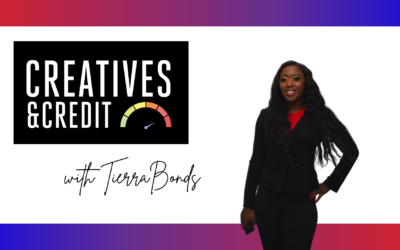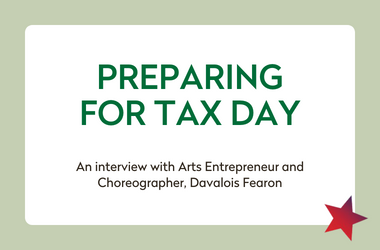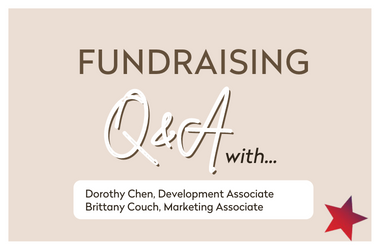Creating your Artist Website: Top 10 Do’s and Don’ts
Best practices for creating your artist website
As a performer or creator in this digital era, it is increasingly important to build yourself a personal website. You need to provide a snapshot of the individual artist you are in an easily accessible place everyone can access. It is especially valuable when potential employers or collaborators want to know more about you. Most likely, they are sifting through material from multiple artists, and anything inconvenient could influence their decision negatively. Make it easy for them.
While the task of building a website from scratch can seem daunting to many artists with no professional web design experience, there are many resources available. This is where sites like Squarespace and Wix come in. They are created for that exact reason.
Finally, your site should be an enticing representation of who you are. So decide what it is you want to say, and follow these tips to help you do it effectively.
DO:
1. Take your time learning the platform you choose. Try out different layouts and get familiar with all of the features and options. If you feel lost, enlist a friend for assistance and don’t be afraid of the site’s Help section. Your page will feel more professional if you really take advantage of all the design elements available. Give yourself time and space to play around and get creative. The end result should be visually stimulating.
2. Your site should reflect the type of artist you are. Set the appropriate mood via colors, backgrounds, font styles, etc. Do you usually work in comedy or upbeat musical theater? Try brighter colors for a happier vibe. Do you tend towards more artistic, dramatic work? Maybe darker shades seem more comfortable. Make it feel like you.
3. Be your own curator. You’re giving yourself the opportunity to showcase what you want. So only include the good stuff…high quality videos where you’re seen clearly, edited photos, nothing from too long ago. If you’re not excited about showing it off, why would you?
4. Include links. Link to your agents, all of your social platforms (if they’re professional), websites of big shows you were involved in or companies you worked for. Also add links to a downloadable version of your resume and headshot.
5. Make the site easy to navigate. Keep it organized and clean. You want it to feel full, but not cluttered. A visitor should be able to find what they’re looking for quickly.
6. Proofread all of the text. Then get someone else to proofread it again. If you’re not confident in your writing ability, ask for help. Sloppy text is an immediate turn-off.
7. Buy the url. It’s usually not very expensive. Choose a professional title that includes some version of your name so it’s easily searchable. www.annsmith.com sounds much more professional than www.squarespace.com/annsmith or www.annlovesdance85.com.
8. Include clear contact info. You can share your personal email and/or phone number if you’d like, or use a contact form that allows people to write to you through the website. If you have an agent or manager, include their contact info too.
9. Be sure to credit all photographs and videos when appropriate.
10. Once you build it, keep it updated! There is nothing worse than a website that clearly hasn’t been touched in two years. If you book a new job, get it up there. If a video isn’t on YouTube anymore, remove the link. Keep it all current.
DON’T:
1. Use lengthy text sections. No one has time to read multiple long-winded paragraphs. You don’t want to lose their attention. Stay strong and concise. If there is a longer piece of writing you’d like to share, link out to it or create a sub-page.
2. Include old footage that isn’t relevant to who you are now. Stay focused on the type of work you are currently doing or want to be doing. Unless it’s something you’re still really proud of, if it doesn’t feel necessary, leave it out.
3. Rely on massive files. The larger your files, the slower your page will load. Find the balance between high resolution and manageable size.
4. Say you’ve done things without backing them up. If you claim to be a teacher, where do you teach? Since when? Make sure the reader can believe and validate everything.
5. Get off topic. This site is for you as an artist. If you are also a baker or real estate agent, make a separate site for that. Definitely include a link to it on this page, but don’t mush everything together. Each pocket of yourself deserves its own show. Also, don’t overshare too many unrelated personal details.
6. Be afraid to ask former collaborators or employers for footage. It’s unlikely that you already have all the photos and videos of your former work in your possession. Reach out to the people who probably have them. Build up your collection and repertoire so it feels complete.
7. Make your page one endless scroll. People don’t want to be wandering around for something. Use clear navigation links, sub-pages, etc.
8. Switch between writing tones. Don’t write some sections in first person and others in third. Don’t write some parts in a casual, comedic style and others more formally. Pick whatever feels right to you, but stick with it throughout.
9. Settle for easy. Don’t just pick the most basic layout and slap everything together quickly. Care about how you’re representing yourself. You are marketing your personal brand. If you put in the time, it will show.
10. Let the price scare you away! Most of these website building platforms have an annual fee. Yes it might seem high, but remember that this is an investment in yourself and your career. It will have endless benefits down the road and you will be thankful you took the time to create it properly now.
NEXTSTEPS GUEST WRITER: SARAH PARKER | 1.14.21
Sarah Parker is an NYC based dancer and choreographer. She has performed in dance companies, national tours, tv/film, and on Broadway. Sarah is a current candidate for a Master’s in American Journalism from NYU.
Latest Blog Posts
Creatives & Credit
Creatives & Credit: A Credit Score WorkshopRecorded on May 4th 2022 Pentacle Presents FREE Creatives & Credit Workshop with Tierra Bonds For artists and creatives looking to build good money habits, this fiscal session teaches you how to reach your credit...
Preparing for Tax Day
Preparing for Tax DayAn interview with Davalois Fearon In preparation for Tax Day, we talked with Davalois Fearon about her experience working with Pentacle, and how it has helped her with her taxes and gain overall financial health, especially through Fiscal...
Planning A Fundraising Event
Planning A Fundraising EventEvent fundraising can be a great way to raise funds There are a number of ways to fundraise money for an organization or cause. One of the most collaborative ways to fundraise is by hosting an event. There are many steps to consider when...



